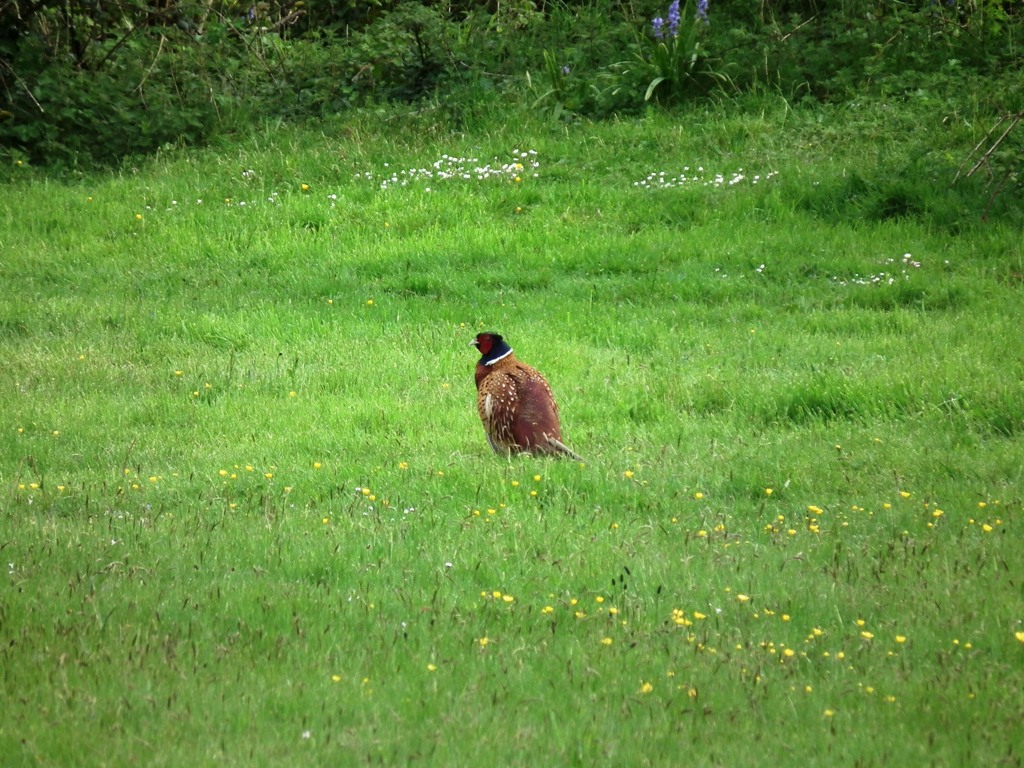Earliest Recollections in Russia 1913 - 1933 and in England 1913 - 1986 of Tatiana Nancy Crocker nee GAUBERT extracted from her memoirs loaned to the Halls by Jocelin A. D. Crocker of South Petherton, Somerset. Tania married John Delamain Crocker (1907 - 1989) in 1943
1851
Robert Gabriel Albert GAUBERT born Nightingale Lane, Clapham Common, eldest son of John Peter GAUBERT and his 3rd wife Anna Maria Sarah Manners. His sister was Lucy Alice (grandmother to Eric Hall). The GAUBERTs were of Huguenot origin, family legend being that a Duc de Nemours, Marquis de GAUBERT had left Bordeaux on St. Bartholomew's Night in a wine vat and landed in Scotland in Queen Elizabeth's time
1861
Elizabeth Krikounovsky born to Elizabeth nee Bannister and Grigory Krikounovsky (his 2nd marriage) was connected to Manners, Bannisters, and Krikounovskys who were Cossacks. Her grandfather, George Bannister who married Nesticia Cleopatra Manners (1820 - 1850?) was a governor of imperial establishments and a favourite of Emperor Nicholas 19 ruled 1825 -1855. He took a troika and horses as a gift to Queen Victoria from the Emperor, and ordered the trousseaux from London for the daughters of Nicholas 1 when they married.
At the outbreak of the Crimean War in 1854 all British subjects were ordered either to leave the country or take Russian nationality. George Bannister went to the Emperor and offered his resignation as he said that he could not be unfaithful to his Queen. The Emperor asked him to remain and allowed him to keep his passport.
The Bannisters had one son Robert, an architect and gold medallist at the Imperial Academy of Fine Arts in St Petersburg. Robert married ??? who died early leaving a small daughter whom Robert adored. She died very young in Yalta and was buried in a cemetery on a hill, no tombstone but an aviary was built and every spring it was filled with singing birds. They also had three daughters -
1. Elizabeth who married Grigory Krikounovsky
2. Susan who married Charles Zimmerman, owner of a factory making top hats as mentioned by Pushkin (?). The IGI records for Russia show her as Susanna Alice Josephine Bannister, the daughter of John Bannister & Susanna Manners. She was born on the 7th Feb 1842 (RG- she was christened at the British Chaplaincy, St Petersburg on 15th May 1842) and married Charles Frederick Zimmerman at The British Chaplaincy in St Petersburg on the 28th November 1859.
from the famous novel 'Crime and Punishment' by Fyodor Dostoevsky (click on image to view larger picture)
3. Alice who was very beautiful and married a deacon at the Russian Orthodox Church in London, Evgeniy (Basil?) Popoff, the son of Father Evgeniy Popoff, confessor to Grand Duchess Marie, and who came to London with her in 1874 when she married Alfred, Duke of Edinburgh. Popoff, as chaplain, inaugurated the Imperial Russian Embassy Church in Welbeck Street, London and First Russian Orthodox Church in England. Alice and Evgeniy had a son. Alice died young after catching a chill at Buckingham Palace and died of galloping consumption.
Elizabeth, the eldest daughter of George Bannister, married Grigory Krikounovsky as his second wife (c. 1860). His first wife was the beautiful daughter of the Lutheran Bishop of St. Petersburg, Reinbott. They had several children and she died young. As a Lutheran she could not be buried in the orthodox family grave so eventually she, Grigory and second wife Elizabeth, an Anglican, were all buried side by side, in Volkovo Cemetery for non - orthodox persuasions. Grigory's father was Timothei Nikitich Krikounovsky, a member of the Council of State, the highest judicial authority in all the Russias, of which there were never more than nine members. He lived in great style in Moscow. Grigory was an engineer and built the first railway in Russia, St. Petersburg to Tsarskoye Selo. When he married Elizabeth Bannister it was firstly at the Anglican Church of St. Petersburg, and secondly at the Cathedral of All The Artillery. Elizabeth Bannister was much admired by Emperor Nicholas 1, she was a very handsome woman, and he even once started a Court ball with her.
Their daughter Elizabeth ( ' Mother ' ) was born in 1861, there were other children, number not known. They all lived in the Bannister family mansion in Mochovaya Street (Mokhovaya Street) , St. Petersburg. The children were largely brought up by their nanny, Varavara. They had their own box at the opera and were often taken to play with the Imperial children ie Nicholas 11, Georgie, Xenia, Michael and Olga. They received gifts of their clothes (an honour, not a necessity).
1867
Elizabeth's mother Elizabeth Krikounovsky died of Diphtheria. ???? Elizabeth's father, Grigory Krikounovsky died and after his death Katia, the eldest daughter of his first marriage, was appointed guardian. She was married to Gippenreiter, Director of Department for preparation of State papers, bank notes, postage stamps etc.
She had three sons and a daughter of her own. After Katia was widowed she had her half - sisters and brother farmed out with an unsuitable English family who maltreated and underfed them till they reached school age, while spending her and their money. Elizabeth and her sister Zinaida (Hope) went to the Smolny Institute and their surviving brother to the Corps des Pages, a military cadet school for the aristocracy. During his last term there he fell in love with a ballerina, caught a chill while waiting at the stage door, got 'galloping consumption' and died within six weeks.
The Smolny Institute
The Institute was originally a convent founded by Elizabeth 1, converted by the wife of Paul 1 to a school c. 1800. Only the daughters of hereditary nobility had the right to attend if confirmed by the Empress. Education was at the expense of the Imperial family. The girls stayed about eight years, no home holidays, French or German on alternate days, uniform was colour - coded for each two years.
1880?
Elizabeth Krikounovsky went to Geneva University (from now on Elizabeth GAUBERT nee Krikounovsky is referred to as ' Mother ' )
1881 Mother climbed Mont Blanc
1886/7 ?
Mother returned to St. Petersburg where she found Katia, now widowed, had spent all her own money and Mother's. She stayed with various friends and relations. After JPG's death in 1860 the paper mill was managed by his eldest son, George Manners GAUBERT half - brother to Robert A. GAUBERT (Mother's husband). George had one daughter Elizabeth (1865 - 1915) who married Elmar Geltser (Hoeltzer) a German chemist's assistant in Uglich who moved to Moscow, spent their money and then sent his wife and three children (Alice, Ernest, and Elizabeth - known as Leila ) back to her parents who died soon after. ('Calls ' - George Manners GAUBERT died 1885, Lucy his wife died in 1892'). The family was looked after by mill management now under the Stevensons (Call's says ' Robert G A GAUBERT eldest son of third marriage, and Lucy Alice's brother took over management after GMG's death with Stevensons as Company Secretaries). Alice married Dr. Dahlbert of Uglich. Leila went to England in 1914 with the widowed Mrs. Stevenson and later became Secretary of the Russian Red Cross Society.
1888
Elizabeth Krikounovsky married Robert Gabriel Albert GAUBERT, her first cousin once removed, in the Orthodox Cathedral of All The Artillery was well as in the Anglican Church in St. Petersburg, as her parents had also been married.
1889
Their daughter Nancy Ann was born in Uglich when Mother was 28. She had Eclampsia (toxaemia of pregnancy) which left her very weak, and as part of her prolonged convalescence was taken to the Paris Exhibition and then to Watford to stay with Lucy Alice, Robert's sister. and her husband Lawrence Usticke Jeans. No love was lost between brothers-in-law. Lucy was known as 'Bo-Peep'. Her education had been helped by her brothers' contributions from their shares in the mill.
JPG's widow, Anna Maria, had left Uglich for Bushey, Herts with Lucy and others (c. 1870). Nancy meanwhile was looked after in Russia by a wet-nurse. Mother and Father spent the winter in St. Petersburg, Mother gradually recovering, in the Spring they went back to Uglich and in September to the Crimea. Nancy had a German nanny, learnt Russian from the servants, English from the family, and French from a governess from six years onwards.
1905
Mother and Nancy were stuck in Yalta because of the First Revolution while Father had returned to Uglich. The papermill employees refused to have anything to do with the Revolution. The paper mill had been built where the Volga and Korozhishmia rivers met and high quality rag-bond paper was made for many years. The mill was equipped with a school, hospital, old folks home, and a co-operative for the workers, all at the expense of the mill. Each employee had his own cow, communally herded. The Mill House, a large rambling place built of wood on the high bank of the Volga, was eventually enlarged to sixteen rooms as the family grew. It was destroyed during the 1917 Revolution. Occasional trouble with an excellent but drunken cook. Stores were ordered for six months at a time and stored in pits filled with ice and snow fifteen feet deep. The house was heated by a huge ' Dutch ' stoves and English fireplaces, sauna - type bath in a log cabin in the garden. Gas, and later electric lighting, were installed as they became available. At Easter, great celebrations, visited and blessed by parish priest, then employees attended for gifts of coloured eggs.
1908?
Nancy's first marriage at 18 to ? Kaubisch, son of the owner of the Hotel de Russie, Yalta. He had no dowry so he plotted to burn down the mill in company with Ernest Geltzer son of Elizabeth GAUBERT and Elmar Geltzer) to get the insurance money, but failed. Nancy had a stillborn child, followed by peritonitis, and in due course Kaubisch had to be paid to give evidence for a divorce.
1911
Robert G..A. GAUBERT died and was buried on the Pokrovsky Monastery in whose cemetery are also buried George Bannister and ' old Mr. Stevenson' (Alex Stevenson who died 1901 /?)
1913 Tania born, parentage unknown
1913/4
Leila (Elizabeth Geltzer) was brought to England after a bad bout of measles by her Great Aunt Letty (Mrs. Stevenson who died 1927 leaving all her property to Leila) and her mother Bessie, hence all three escaped the Revolution.
1914
Mother converted her house to a hospital on the outbreak of the 1914 war. She trained as a nurse and founded the order of St. Nicholas, semi - religious, similar to the Order of Martha & Mary founded by Grand Duchess Elizabeth, elder sister of Empress Alix who Mother knew well.
1915
Mother was the matron of a large tented field hospital for 1,200 cholera and typhus patients. Gradual retreat of hospital from the front near Warsaw. Being an infectious hospital not allowed to enter towns. Tania had cholera in 1915 - there was no known treatment other than nursing. Prognosis very poor but cured by prayer and half a tumbler of saturated salt solution injected intravenously (' Calls of Norfolk & Suffolk ' page 68). Tania was also suffering from bullet contusion on forehead, probably a ricochet.
1916
Mother and Tania moved to Novo - Gireyevo, a large country house near Moscow, where Mother was matron to a lunatic asylum for shell - shocked soldiers etc. Here Tania first met her half - sister, Anna Romanova Ivanovitch Velichko (Nancy Anne or ' Boolia ') now married to Nicholas Ivanovitch Velichko known as ' Coca ', an engineer living in St. Petersburg. His father owned the Volga Steamship Company. This was a very happy marriage. Occasionally they were visited by Grand Duchess Elizabeth to whom Mother had a strong resemblance. The three sisters were Grand Duchess Elizabeth ('Die Schoene '), Empress Alix ('Die Bose '), and the Marchioness of Milford Haven ('Die Kluge '), ' three Hessian Flies '. Grand Duchess Elizabeth was arrested by the Soviets, taken to Siberia where she flung herself down a mineshaft where other members of her family were thrown in.
1917
Emperor Nicholas 11 abdicated and was later executed with his family in Ekaterinburg. The Revolution arrived in Novo - Gireyevo. Mother resigned from the hospital and returned to her estate in Uglich.
1918.
Mother was decorated by the last independent Patriarch of All the Russias, Tihon, with an old Russian crucifix.
ABOUT UGLICH
An ancient and historic town on the Volga where Dimitri the infant son of Ivan the Terrible was murdered supposedly on the orders of Boris Gudenov in 1591. Legend has it that the Bell of Uglich, which had rung out the alarm, was later sentenced to several hundred strokes of the lash, had its clapper torn out, its ring smashed so that it could never be hung again and sent to exile in Siberia. A considerable number of the population suffered the same fate for either having witnessed the incident, or having spoken about it. The bell was returned to Uglich in 1892.
On arrival however, Mother and Tania found the mill and house had been burnt down. They stayed about six months in Novo Divietchy Convent., an enormous fortress with high battlemented walls and a huge entrance gates, with three churches inside, a cathedral and two summer - only churches, with accommodation for nuns and a house for the Reverend Mother.
The Convent was entirely self - supporting with its own farm, the nuns being mostly peasants or small - town folk. The nuns were eventually turned - out by the communists due to the non - forthcoming support of the townsfolk when the military arrived. Disquieting news came from Petrograd (as St. Petersburg was now called) regarding Nancy so they moved there, a three - day paddle steamer journey. They stayed with Nancy and Coca in a block of flats owned by Coca's father. There was a gradual deterioration in living conditions, food became scarce, inflation, reduction of allowed living space, no fuel, electricity or water in the severe winter conditions. Then, as now, Communist Party members had access to special shops and supplies to which the rest of the population had no right.
1918?
Coca was arrested and shot, accused of a plot to blow up a public building when he was found with plans him, but was only designing another stove. Meanwhile Nancy was bartering anything she could for food. There were ' domicillary visits ' by secret police, usually at night with the looting of anything valuable. Jewellery was saved by being made to adorn a rag doll of Tania's. Nancy was arrested and Mother put under house - arrest., later arrested and taken away. Meanwhile Tania was looked after very badly by a family called Thompson., somehow ' related', for three months. When her mother was released she found Tania filthy, unkempt, and hungry, yet the Thompsons were being paid to look after her. Mother and Nancy were released at the same time, ' guaranteed ' by Andrei Nicholaivich Toupolev, a Communist and later the famous aircraft designer. Just before Mother was arrested, everybody was ordered to get what was known as a ' Labour Book ', the new name for an internal passport, by which the Bolsheviks hoped to get better control of the population and its movements. So when she was released Mother took Tania to collect her papers, asked for her Labour Book and the birth certificate of Tatiana, her accepted daughter. In Russia it had never been necessary to be legally adopted, to be an accepted daughter. Tania never really understood this and always felt there was a difference in status between her and Nancy as Mother's daughters.
1919
Nancy married for the third time, to Ivan Ivanovitch Pohosky, a Polish catholic, a young airman friend of Toupolev. He also knew Yakolev who was the designer of the Yak aircraft in WW2. He was known as 'Uncle Vanya' or 'Dadya Vanya'.
1920
Nancy left Petrograd for Moscow. Mother and Tania went to Uglich, having obtained permission to leave Petrograd, and stayed at the Convent. They found that all their belongings which had been stored in crates, had been looted as nobody ever expected them to return. Mother became principal of the orphanage. The children were regarded by the Communists as the ' Flowers of the State '. Food was a little easier to get in the country. Mother was still lovingly remembered by the mill workers and villagers in Uglich who longed for the good old days.
1921
Nancy and her third husband came to stay for a while, but the family, having been former employers and therefore capitalists, were finding life becoming increasingly more dangerous, not from the loyal mill workers, but from agitators coming into Uglich and stirring up hatred against them. The decision was made to go back to Moscow where they could be ' unknown ' in a large city. Before they left they went on foot to visit the Pokrovsky monastery and the cemetery where Mother's husband was buried.
1921 - 24
Malahovka, 20 miles south east of Moscow. Mother and Tania went to live in a dacha in a pine forest, two to three miles from the village, belonging to Nancy's in - laws, father was a vet, mother was also Polish. Vanya and his brother became pilots in the air force and made friends with Toupolev and Vanya became his right - hand man and construction engineer. They had occasional visits of a day or two to visit Nancy in Moscow where she had only two rooms. All the time they were provided for by Nancy who had many friends and good connections. Nancy spent much of her time bartering clothes, jewellery, and possessions for money for food. Anyone who had any last remaining bits of jewellery kept them well hidden if possible, always as an insurance for the future. Nancy always had the intention that one day she would get mother and Tania, and hopefully herself, out of Russia and to this end she kept up her contacts with the British embassy. She was great friends with Robert Hodgson, British Consul in Moscow and he was later Tania's guardian. Nancy helped him furnish his house and lent him some family furniture and belongings and some came from her old friends. Tania was being educated by Mother at home. The new economic policy of Lenin encouraged free enterprise and stopped nationalisation (1921 - 1928).
1924
Lenin died and Stalin took over. Collectivisation programme followed and things got worse again. In June Mother and Tania went to Anapa in Caucasus on the Black Sea, and lived mostly on fish which was plentiful whilst other foods were scarce. Nancy and Dadya Vanya came for one month's holiday. Then he returned to Moscow, Nancy stayed, planning for Mother and Tania to go and live in Yalta, Mother being no longer able to stand the cold in Malahovka. They finally got a ship to Yalta, having waited a long time in the autumn because of high winds and ships could not get into Anapa harbour.
1924 - 27
Yalta . Tania's education continued with private tuition and ballet and music lessons. They had a furnished room in a house with no bathroom. In summer they washed by sea - bathing; in winter, which did not last long in the Crimea, they heated water and washed in a basin. Tania was told by Mother that her god - parents had been the Emperor and Empress. Tania passed 4th. Class exams at the local ' Gymnasia ' in the Spring of 1925 and prepared to take 5th. Class in September when only eleven and a half years old. She was coached by Professor Yaroshevsky. Each year Nancy came from Moscow for her holidays. She was very busy giving lessons, doing translations, and selling antiques to make money to be independent of her husband and to keep Mother (then 64 yrs. old) and Tania.
1926
The Soviet government was becoming more and more intolerant and persecuting so Nancy began to plan how she could get the three of them out of Russia. Mother, being a British subject, could have left Russia at the time of the Revolution with the assistance of the British Embassy, but would not go without Nancy, who was Russian by marriage now. Nancy tried to get help from R M Hodgson, head of the British Mission but he refused to help Tania as she was not British by birth. In early Spring, Nancy got a visa to travel to the West for approximately three to five weeks. She went to Riga, Berlin where she re- met her first husband, and Paris, making money by doing needlework and copying couture models. She met plenty of friends, White Russian emigres, and then went to England to stay with the Jeans in Watford for a month, Lucy Jeans being her father's sister (NEAH remembers this visits). Nancy left some jewellery and material with them, firstly a Brussels point lace lapel, the gift of Empress Marie Feodorovna (widow of Alexander 111 and sister of Queen Alexandra of England) and, secondly, a length of gold and silver lace, a remnant of the christening robe of the Tsarevich, the only son of Nicholas 11.
They were to await their future collection. She also put into cold storage in Paris some furs she had brought out of Russia with her. She was at the Paris airport (Le Bouget) when Charles Lindberg landed having flown the Atlantic from America. She returned to Russia with a portable gramophone, the latest records, needlework materials, a black patch over one eye following an injury from a flying champagne cork, and a sprained ankle, claimed to be an ex- dancer and got everything through the customs.
Back in Russia, Nancy told Mother she planned for her and Tania to live in the South of France as England would be too expensive, and she would live in Paris
1927
Tania passed all her exams - history, literature, maths, physics, chemistry, and continued music, ballet, and languages and got her Matriculation Certificate at not quite 14 yrs. of age. In the summer the Arcos (Anglo Russian Trade Delegation in London) raid in London and Litvinov letters caused rupture of diplomatic relations between England and the USSR. Sir Robert Hodgson left within 48 hrs, no news or money from Nancy in Moscow and no one to ask for help. They then heard from Dadya Vanya that he and Nancy had both been arrested, he was 'out' after a month, but Nancy was still 'in' and they were both to come to Moscow as soon as possible. Earthquakes in Yalta for two weeks and a total eclipse of the Sun. Mother and Tania left Yalta in September by boat to Sebastopol, then train for three nights and two days to Moscow.
1927 - 33
Moscow. Mother and Tania returned to Nancy and Vanya's flat, two rooms of which were now occupied by Communists and their wives, therefore it was not safe to speak in any room for fear of being overheard. They were down to two rooms only for four persons. Nancy and husband had been arrested within three days of Sir Robert Hodgson's departure. He left everything in the care of the Norwegian Legation, the Head of which was Dr.Urbye who knew Nancy well but could do nothing as she was a Russian by marriage, not a British subject. She was ill in bed with high fever when arrested, and later had a D & C in the prison hospital (Lubyanka prison).
Vanya was out after one month, arranged by Toupolev, and was contacted by the old mother of a woman thief, Tanya, who was in the same cell as Nancy. He managed to get some clothes to her as winter was approaching. Everyone that Vanya or Mother asked to try and get Nancy released were afraid to help. One night in November she was suddenly returned to the flat, unable to walk, very poorly and shabby. She stayed in bed and was nursed by Mother. The doctor came and she was visited by Tanya, the thief, her husband , when SHE was released! Stalin's ' scorched earth ' policy was now under way.
Whereas the country had begun to settle down after the Revolution, now the hunger and terrible shortages started again and were as bad as ever. Tania enrolled in the Bolshoi Ballet School evening classes. Nancy was being treated by homeopathic doctors for carcinoma of the liver until Vanya found out and was furious. He sacked them and called in a surgeon who said she either had cancer or liver fluke, gave her an injection of something which turned out to be stale. Septicaemia set in and she died in four days on the 4th.May 1928. Just before she died she said ' Tania, ... you are not ...my...' repeated, but could not say the last word. Tania knew what she was trying to say (presumably 'my daughter ') and desperately did not want her to say it. She died a few minutes later, aged 36 yrs. She had a Russian funeral after three days of ' lying in state in Vanya's study in an open coffin, then to the church. The coffin was nailed down and put into the grave. She was buried in the foreign cemetery where Vanya's father, a Pole, was buried.
August. During Vanya's holiday all three went to Sochi in Caucasus on the Black Sea - 4 days and 3 nights by train. Back in Moscow, Tania was having piano lessons, and she also began giving English lessons to two young girls. Tania was accepted into the main Bolshoi Ballet School. One day she met the daughter of Ernest Geltzer, who was the son of Bessie & Elmer Geltzer, and a grandson of George Manners & Lucy GAUBERT. Geltzer, a German, was a chemist's assistant in Uglich. They lived in Moscow where Geltzer went through all his wife's money, then sent his wife and three children back to her parents in Uglich. Although Mother did not wish to renew the acquaintance with them, Ernest invited them at the flat and told them that his sister Leila (Elizabeth) was in London where she worked as a secretary to Colonel Zinovieff, the Chairman of the Russian Red Cross Aid Society for the relief of refugees from the Revolution.
She had been taken to London in 1913/14 by her Great Aunt, Mrs. Letty Stevenson and her mother. His other sister was Mrs. Dahlberg (Alice or Dagmar?). Mother and Tania continued to live with Vanya uneasily for about a year with Mother keeping house. They went to the Norwegian Embassy and managed to have Mother's passport (lost in the Yalta earthquakes) renewed and Tania was put on as well, thus giving her British nationality. This was done by a charming Colonel Quisling, later to be Minster of War in the Norwegian government and Head of State during the German occupation in WW2. At the end of the war he was tried and executed by the Allies as a traitor. Colonel Quisling did this for Mother out of compassion for her and because of his knowledge and acute detestation of the Soviet regime and all its practices, although he had a Russian wife. Mother received a certificate stating that they were British subjects, she was so relieved that Tania was at last on her passport (certificate). In due course this certificate was exchanged for a passport on the renewal of diplomatic relations. Tania, now aged 15, was giving English lessons to engineers etc.
1929 June
They had a holiday in Yalta for one month organised by Vanya and returned via Sebastopol, both seasick, where one evening Mother was most peculiar and thought herself to be back in her childhood. On the overnight train to Moscow, Mother had recovered by the morning. When they got back to the flat they found Vanya had turfed them out into the very small room with all their belongings and would only give them a very small amount of money, keeping most of the furniture and Nancy's jewellery etc for himself. In the Institute for Scientific Administration of Labour & Technology, Tania took more jobs, teaching and at the Library. She was still not quite 16.
They were befriended by James A. Mills, an American of Associated Press, an old friend of Nancy's, who strongly advised them to get out of Russia if possible.
“When Mohandas K. Gandhi was arrested in January 1932, Associated Press correspondent James A. Mills was with him. Gandhi turned to Mills and said, ‘It may be that I shall die in prison. It may be I shall never see you again. Therefore, I want to thank you and The Associated Press for the thorough and impartial way in which you have always reported my activities and the progress of the Indian Nationalist movement.”
Mills taught Tania English shorthand and typing, and introduced them to many people who might be able to help at the British Embassy which was now re -established. Mills was adamant that they go to the Embassy, make themselves known and see that Mother's passport was all in order. Through him they met William Strang, the new Counsellor at the British Embassy, Alan Walker First Secretary, and Greenaway, the Second Secretary. Mother and Tania went to the British Consulate and met Leslie Pott the Vice Consul who renewed the passport and, with the certificate issued by Colonel Quisling. He quite happily inserted Tania onto Mother's passport, complete with photographs supplied by James Mills. She helped James Mills and newly -arriving American business people with furnishings etc.
1930 Spring
Tania left the Library and worked as an interpreter at the Institute of Non - Ferrous Metals for an American, Mr. Platt. Other translating jobs were often paid for by visits to the theatre, ballet, or dinner etc and sometimes clothes or food for Mother. They were also helped very much by food and clothing from US and GB friends and acquaintances. Tania began to learn to play tennis in exchange for lessons in English. If ever anything of value was lost or stolen, as once all the coats in their flat were stolen, they never reported the theft as they had no wish to draw attention to themselves or their foreign contacts. Everyone kept their heads well down. If arrested or imprisoned, they were always given a receipt for any belongings found on them, but of course they were never returned and never asked for in case of retribution. They were introduced to Lady Muriel Paget who was running a society for the relief of distressed British subjects in Russia and who arranged for monthly food parcels. One day whilst paying their rent to the book - keeper of the house, he whispered to Tania that the community leader / head of the house and her brother - in - law were trying to have them removed from the flat as one of them wanted their room ' Your social antecedents are the only ground on which they can do it. Your brother - in- law has reported that you are the illegitimate daughter of the Grand Duchess Olga ' (eldest daughter of Czar Nicholas 11, she died with all her family in 1918). Tania thanked him for the warning, there was nothing they could do but to mind their Ps & Qs (Tania makes no further comment on this).
1931 June.
Tania was interrogated at the Lubianka prison, and after filling out the usual form of personal details, (she and Mother had long agreed and always tried to say exactly the same when questioned) that her father was a mechanical engineer and English who had died long before the Revolution. Mother was the daughter of a railway engineer, neither of them ever possessed any moveable or immovable property or 'received any decorations from previous regime'.
Mother had been a hospital nurse at the front and worked in a lunatic asylum. Uglich and Coca Velichko, Nancy's second husband, were never to be mentioned. Tania's answer concerning her parents was queried ' Is not your real mother the Grand Duchess Olga? . Tania replied that she certainly was not. Asked if she was the daughter of Velichko and Nancy, she replied ' No, I did not think so '. ' Who were they then?' and she replied she did not really know, but thought she was a foundling. Because of her contacts with foreigners through the British Embassy, she was invited to 'collaborate' by supplying inside information to the Communists. She realised if she refused she could be sent off to Siberia straight away. Mother would never be told and she would be turned out of the flat, have no means of food and no one to look after her. Tania, after saying she never talked politics to foreign friends, said she would agree, knowing she could just report only the ordinary day-to-day contacts she had with friends.
Their desire to leave the country was greatly increased by all this.
'We, in common with other Russians, suffered from a misconception that all serious minded foreigners who came to the USSR were aware of the brutal bondage imposed on us by the Communist regime and that they could not but sympathise with our problems. It was, for instance, unthinkable to us that people such as Philby could even exist '.
Thereafter, once a week, she met one or other of the Communists who had enrolled her to ' collaborate ', to tell her of her meetings which consisted of such messages as ' I dined with Mr. and Mrs. X, and, having played ping - pong, went home at 10 o' clock '.
Tania had a new job in the state Bank of USSR in the Correspondence Department, typing and coding telegrams. One advantage was a canteen although the food was minimal and nutritional value even less but it was better than nothing. Food was still very scarce and most was sold abroad to raise currency for arms. Letters took up to three weeks to get from London to Moscow and were invariably opened by censors. ' When we finally left the USSR, all our friends, without exception, asked us NOT to write to them '. To try to stamp out religion in Russia, weekends were abolished by the Communists and were no different to other working days.
1932 / 33
During the winter of '32 / 33 they were informed that their furniture, which was being used by the British Consulate in Leningrad, was no longer needed and would they do something about it. Eventually in April, Tania went to Leningrad and sold it to a State antique dealer for Rs 20,000. This money helped to pay for transport of their effects when they left for London
Problems arose with Mother's British passport because it had not been registered with the Foreign Department of Moscow Soviet some years previously and was therefore declared invalid. They were supported by the British Foreign Office but there was a long delay.
Mother made a claim for 'several million roubles' in compensation for land and industrial plant owned by father and made Tania heir to it all, if it was ever obtained from the Soviet Government. (later this will went missing in a London solicitor's office).
Tania was next suspected by the British of being a Soviet spy and when she reported this to her Soviet contact, he said he would arrange to have them 'expelled' as she would be no further use if suspect. The papers were still being delayed, and lo and behold a week later they appeared and Tania was informed that she and Mother were being expelled and to be out in three months.
The furniture had to be crated, unwanted belongings and clothes sold to friends. Tania managed to get back from Vanya one or two diamonds of Nancy's that she had always said were for Tania. Various last minute difficulties arose re the tickets etc, but finally on the 9th. October 1933 they were seen off by several Embassy friends and caught the train from Moscow to Warsaw. They still felt very insecure while on Russian soil, anything could have happened. Great relief came when they arrived at the Polish frontier only to find they should have had Polish transit visas and of course no money to buy them having had to give up all remaining Russian money at the Soviet frontier. Luckily contact was finally made with the British Embassy in Warsaw who assured the Poles that they held sterling to buy tickets to London. They were met by the Pro Consul and wife (Polish) in Warsaw and treated to pastries and coffee - terrific treat.
He gave them their sterling in a sealed envelope and off they went to Berlin where they bought tickets to London. Train to Hook of Holland
1933
Mother and Tania arrived in Harwich on 12th October 1933. They travelled to Liverpool Street Station where they were met by Lady Muriel Paget's secretary and taken to her London house in Devonshire Terrace. They had lunch with old friends, went to Paddington and then to Cranmore Hall, (Paget’s home) near Shepton Mallet in Somerset (later Tania's sons prep school).
Mother wrote to Kaubisch, Nancy's first husband, about Nancy's furs, and also to Rosa Hammer who was supposed to be paying the rental on cold storage in Paris. There was no reply from either. She also wrote to Aunt Lucy Jeans in Watford and they were visited by Frank Jeans (Gig). They were also worried for a long time by the non -arrival of their furniture etc.
They had several visits to Bath to Gig and family, who were finding life very difficult in the Depression. Phyllis was most helpful and kind. She also had her father and step - mother living with them at 13, Macaulay.
1933 November
Mother and Tania stayed with Lucy Jeans in Watford at Eastleigh - 'a large and ugly Edwardian house and very badly tended garden, house incredibly dark and dirty, no servants not even a char. Both in their 70's and poor Aunt Lucy stone deaf. Food still poor as at Nancy's visit in '26. Poor Aunt Lucy, not poor at all, but well-to-do, just mean ' (he had complete control of all household finances, and insisted she supplied accounts down to the last half penny.). All the cutlery was collected and put under the bed at night. They were very taken with the loo - a mahogany polished box with three steps leading up to it, the pan decorated in blue flowers, fruit, birds, and butterflies, cut-up paper in a box - Times, magazines, old letters etc.
Lawrence made an arrangement with the Westminster Bank for Tania to be interviewed for a job, and also gave them Nancy's diamond ring, watch, and lace left by Nancy on her previous visit. Tania was taken on by the Westminster Bank at £ 100 per annum in the Foreign Branch. She was due to start on the 5th. December. Lodgings were found by Lady Muriel Paget. Tania had lodgings at 296, Monega Road, East Ham, leaving Mother at Cranmore House. Tania was working at the Westminster Bank headquarters in Commercial Intelligence Department.
Their first Christmas in England Mother was taken ill after leaving Eastleigh with rheumatic fever. She was taken to Bath and looked after by Frank and Phyllis for six weeks. Tania's job changed to Cables and later to Arbitrage (buying and selling currency)
1934 March
The furniture arrived, Mother moved from Cranmore Hall to London to a flat at 6, Lawrie Park Road, Sydenham SE 26. They sold the lace and the diamond ring (18ct) for £ 650. Tania was seen at the Home Office as Mother wished to check that all was well concerning her nationality as she was approaching her 21st. birthday. Before they left Moscow, the British Embassy told her she must go to England before she was 21 or she would lose her British nationality.
She was seen by a very nice 'Mr. McAlpine' at the Home Office, and it fell on him to tell me that I was not a GAUBERT. And really, nobody knew who I was, and that therefore I would have to be naturalised. Although in the past I had heard stories as to my origin, this was the first time that I had been officially confronted with it, and I found it difficult to control myself and not burst into tears. All I did in fact , was to bite my lips very hard. When he had finished I said to him ' I do not want my mother to know that I know for fear it will destroy that mother / daughter relationship which we have '. He promised to say no more about it. Eventually I received my naturalisation papers and had to take the Oath of Allegiance before the Lord Mayor of the City of London
1934
Heard of Dadya Vanya's death in a flying boat accident. They also managed to regain, eventually, a portrait of Nancy that she had had painted of herself in Leningrad a few years before her death. To show how hard life was for them Tania writes:
'As we were finding life in England more and more difficult, in fact desperate, owing to a shortage of money, Mother had begun to wonder whether we should go back to Russia in spite of its regime and all we had striven so hard to leave. After all, I would be able to make a living of some sort there again. I could get married. I was very fond of Serioja Myshenkov and he was not the only one who would have liked to have joined his life to mine. The people I came across in London, mostly at my work, were unsuitable. To be sure, we would have to give up our British nationality for good and 'go completely Russian'. But, we thought, perhaps we would survive both on the physical and mental plane. Seeing that Stalin's purges were gathering momentum, it was very fortunate that we dropped this dangerous idea; for we would almost certainly have perished had we gone back '.
They met up again with Sir Robert Hodgson, now British Consul in Albania. At Mother's request (she was now 73 yrs old) he agreed to become Tania's guardian, and through him the Westminster Bank were alerted to their parlous financial state. Uncle Lawrence Jeans was contacted and, as their only relative in England, it was his job to supplement Tania's pay. The result was 25/- a week and a daily lunch. Through a solicitor cousin of Sir Robert's, the ' Guild of Aid for Gentle People ' produced 30/- per week, with occasional allowances for coal in the winter and the odd gift of clothes. ' Friends of Foreigners in Distress ' gave Mother 10/- a week. She moved to a less expensive flat at No. 39 in the same street which was 30/- a week and no rates.
Tania was contacted by a Miss Tudor Hart and 'Mr. Brown' who offered her £ 15 a week to recruit Inspector Morse, the Special Branch officer who had interviewed her in regard to the naturalisation papers, to work for the Russians. She heard no more of Morse, told ' Brown to get lost' and heard years later that he had been arrested. They moved again to 4, Brackly Road, Beckenham because of expenses, after 19 months at No. 39.
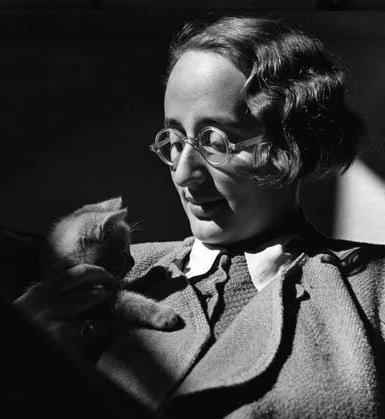
( RG - Tudor-Hart was key in recruiting both the Cambridge Spy ring which damaged British intelligence from World War 2 through to their discovery in the late 1960s. She had met Arnold Deutsch in Vienna in 1926, and with whom she worked in the OMS, the International Liaison Department of the Comintern. When, in 1934, Litzi Friedmann and Kim Philby arrived in London from Vienna, Tudor-Hart is credited as having suggested to Deutsch in his role as the now London-based NKVD recruiter, that the NKVD recruit them as agents. She acted as an intermediary for Anthony Blunt and Bob Stewart when the rezidentura at the Soviet Embassy in London suspended its operations in February 1940.)
1938 Summer
Mother had a stroke and was sent to Kent County Council Hospital in Farnborough. Tania went after work each day, taking something nourishing with her and feeding her, as being paralysed Mother could not help herself and the nurses were too busy with all the ' incurables ' in the ward. They appeared not to expect stroke patients to recover. After three months Mother begged to be taken home but first Tania had a holiday in Hastings as a paying guest in a bungalow. She then returned to take Mother home again against hospital advice. Mother was very happy and gradually improving all the time. Four months after her return home, she had a second stroke. Leila Geltzer found them some home assistance through the Russian Red Cross Society (in 1917 this had become the Russian Benevolent Society).
1939
At the end of February Mother had another stroke and she died on the 8th. March 1939 aged 78 yrs. Tania was 24 years old. There was a Russian Orthodox Church service followed by cremation at Streatham, all fixed up by Leila Geltzer. Tania was granted three months leave from the bank at Sir Robert's request, which she spent at Scarborough. War broke out on the 3rd. September 1939. Life went on very much as usual for the first year. Tania moved to 265, Barkston Gardens, Earls Court. (mention of ' my aunt and uncle Gunn ' - artist ie Gwen and Aunt Dagmara), no more known. Blackouts, alerts, and rationing.
1941 Easter
Tania went down to Rock to stay with Prince Bira (Prince Birabongse of Siam) a pre - war racing driver and his brother Prince Chula (who acted as his manager) and their wives. The first of several visits. Mention of a great friend, Prince Maximillian Melikov/Melikoff, educated at the same military school as Mother's brothers had been. Later Max was appointed page to Her Imperial Highness Grand Duchess Olga Nicolaevna, eldest daughter of Emperor Nicholas 11. He told Tania how he used to arrange secret meetings between Grand Duchess Olga and a Colonel Koussoff, a Guards officer. ' I never mentioned to Max anything about my problems, but one day, while talking to another Russian friend, I asked her if she had any photographs of the Grand Duchesses as I had none and would like to have a look at them. Her immediate reply was ' If you want to know which one you resemble I will tell you straight away, it is Olga ! ' I did not comment. Poor Max, after a year or two in the Guards, first the War and then the Revolution swept all the sublimity out of his life leaving him, out of Russia with hardships etc.., he and his brother gave exhibition tennis matches on the Riviera, worked as ' gigolos ' in Paris night clubs. Finally he married a very rich woman, a Tasmanian jam heiress. She, having got his title, dropped him so he was still penniless '. (RG - she was Pauline Curran, born in Hobart, who married Max in 1926. He died in 1988). In 1943 Max was one of the witnesses to Tania's civil marriage.
(RG -Prince Birabongse Bhanudej Bhanubandh born 15 July 1914, Bangkok, Thailand – died 23 December 1985, Barons Court Station, London)
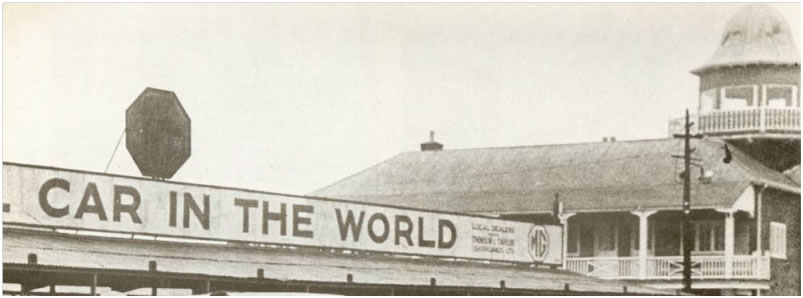 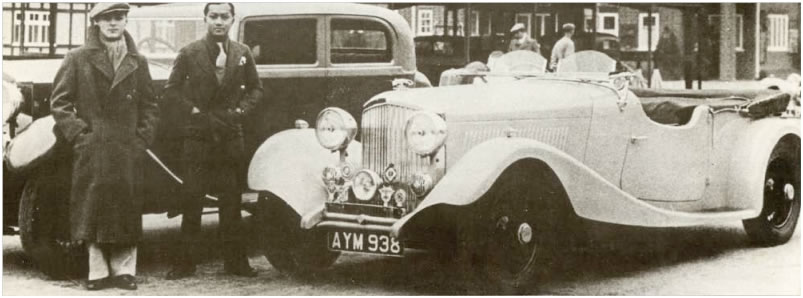 |
|
Chula and Bira at Brooklands |
|
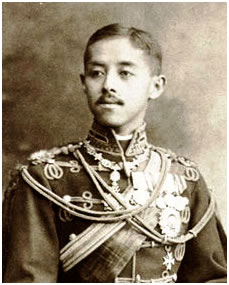 |
His Royal Highness Prince Chakrabongse Bhuvanath, Prince of Bisnulok, was born on 3 March 1883, 40th child of His Majesty King Rama V and 4th child of Her Majesty Queen Sri Bajarindra. He was educated in the Royal Palace, and then was sent to England. During King Chulalongkorn's visit to Russia, His Imperial Majesty the Tzar Nicolas II of Russia, a close friend of King Rama V, invited the king to send a son to be educated in mighty Russia, under the care of the Tzar. Prince Chakrabongse was chosen and soon, after learning Russian in England, he went to Russia. He finally became a Colonel in the Hussar Regiment of Emperor Nicholas II of Russia. |
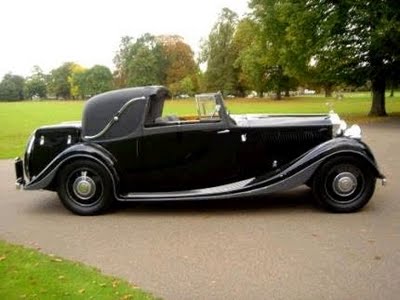 |
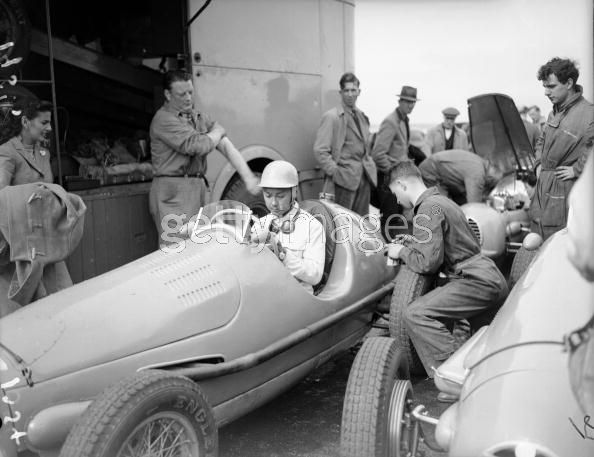 |
|
Prince Bira
|
Chassis No GUN31 was purchased in 1937 from Jack Barclay’s West London showrooms by Prince Birabongse of Siam, the successful pre-war racing driver. At the age of 23 Prince Bira had been given money by his cousin Prince Chula as a wedding present to furnish his new house. However the stylish 25/30 he saw in the window at Jack Barclay’s showrooms proved to be too tempting and the funds which had been previously reserved for furniture were used to purchase this handsome offering by Gurney Nutting instead. Prince Bira started racing in 1935 with notable success, driving Riley, MG, Aston Martin, Delage and ERA cars. Victories at the Grand Prix de Monaco at Monte Carlo and the JCC International at Brooklands in Surrey, England were some of the highlights of his second season in racing. Prince Bira is understood to have used GUN31 as his mode of daily transport until 1949, taking many Continental trips both before and after the war. Bira and Chula lived at Tredethy house in Cornwall and was Chula's home from the end of WWII until his death in 1963. Bira lived there for a while and was a frequent visitor. The house is now a hotel. Mehe Bira/Chula memorabilia previously held at Tredethy House, Cornwall has been returned to Chula's daughter Narisa. |
|
(RG - Bira's famous blue Bentley. This shade of blue was copied from that of a dress worn by a Danish girl he had met. Thereafter this shade was adopted as the official colour of the Siamese racing tea) |
|
piece missing -
.......Chatelain, so we were four. I made a borsch, followed by a ‘kournik’, the raised Russian pie, containing chicken, rice and mushrooms; washed down with a bottle of wine. We finished with a fresh fruit salad and coffee. It all cost us 10 shillings and sixpence and there was enough left for two of us the next day.
When the dining at the Tchoudakov’s one day, I met there a young man called Alexander Rahm. He spoke Russian like a Russian, though he was a Swiss National. His story was rather odd. I can no longer remember how his ancestors arrived in Russia, nor what they did there. (his father was a big industrialist, and had his plants somewhere on the lower reaches of the Volga). Suffice it to say that his grandfather had married one of the daughters of the Tokmakovoy & Molotkovy firm, which owned an enormous area of vines in the Crimea. This grandfather had considered himself at the time, for his bride had a dowry of 22,000,000 roubles, while he had only 19,000,000.
In their Swiss wisdom they had always retained their Swiss nationality; so that when the Revolution came the parents managed to get out of Russia with their small son and daughter on their Swiss passports. Naturally, they returned to the land of their fathers, though, by then, they were as Russian as any Russian could be. There, life became a very hard for them as they had lost all their money and plant in Russia. Most foreigners and industrialists had thought the regime to be so stable that few had ever considered it necessary to transfer their wealth abroad.
When, one day, Shura’s (one of the diminutives of Alexander and Alexandra) father remembered that just prior to the First World War, he had ordered 30,000 pounds worth of machinery from Metro-Vickers in England, which had never been able to be delivered owing to the outbreak of war. He had got in touch with the firm who, to his great pleasure, acknowledged the fact and refunded the money.
Possessed with what was, at that time, a large sum of money, Madame Rahm proceeded in a typically Russian manner (Prince F. Youssoupov in exile in Paris squandered the 60,000 pounds he had won in his libel case against Metro Goldwyn Meyer giving a continuous ball in the adjoining ball-rooms. With the result that this that his wife, over whose alleged relationship with Rasputin the case had been brought, was ultimately left with only the black skirt and jersey that she had possessed prior to this ‘last fling’). She gave ‘coming out’ balls for various impecunious young Russian girls of the best families. Fortunately, the husband had bought a house in Geneva before the funds ran out. This, characteristically too, they turned into a Pension. Their own daughter married in due course, one of the many Princes Obolensky.
When the time came for Shura’s higher education, he was sent to the Sorbonne in Paris where he studied engineering and mathematics for which he must have had a considerable bent. Before long, he constructed a 10 foot high clock out of Meccano, with calculations for 40,000 years of all of the dates of eclipses, equinoxes, moon phases and Easters etc. He then gave several lectures to the learned Frenchmen at the Academy of Science.
While at the Sorbonne, Shura lived with a Russian aunt, married to Kazanbek (the descendant of the last ruling Bek of Kazan, defeated by Tsar Ivan 1V. They were Tatar rulers of the Golden Horde) while her sister had married Prince Chakrabongse, the heir to the throne of Thailand, whom she had met during his visit to Imperial Russia during the reign of Nicholas 11. After several attempts, by relatives coveting his position, to poison him, poor Chakrabongse succumbed, in spite of the watchful eye and careful nursing of the two sisters.
The above explains why the late Prince Chula Chakrabongse the son of the murdered man, like most Orientals, felt a bond between himself and Shura when they first met. This was shortly after Shura had finished his education and was looking for a job. Prince Chula offered Shura the post of Controller of his household and general factotum, which he accepted. At the time Chula was organizing and managing his cousin, ‘B, Bira’s’, motor racing which was proving highly successful as well as lucrative and it was Shura who took over the engineering side of the enterprise. Later, I was to see a good deal of them all.
When war was first declared, I was still living in Beckenham. It was a beautiful summer and autumn. To me there seemed no need of war; it was only Hitler’s greed and stupidity. I hoped that the British government had profited by the respite of one year since the Munich Agreement to improve our preparedness, for no one doubted that war was coming. It was most unfortunate that the Prime Minister, Neville Chamberlain was suffering from cancer of the rectum at the time. Running in and out of the conference room with diarrhoea and a bleeding ‘arse’ trying to get the better of his desperate sickness, was hardly a situation conducive to ‘peace in our time’.
During the first winter of the War the Government decided to intern all enemy aliens between the age of 16 and 60 in Canada, to keep them out of harms way. Helmut Blume fell into this category. Poor man, he had just managed to get himself the post of music master at Canterbury School, when off he had to go; leaving me a bit lonely.
Then, Moussia Tchoudakova again invited me to meet Shura; followed by my inviting him to dinner together with the ‘Little Old Duck’. That started a pleasant and amusing relationship between us.
The first twelve months of the war, known as the ‘phoney war’ did not change life much. We all went to work carrying our cardboard boxes containing our gas masks. After a while people became careless and began leaving them on the train. The more enterprising got black oil-cloth covers for them. We were all issued with identity cards – a thing never tolerated by the British before – and, eventually, ration cards. The greatest inconvenience however, was the ‘Black-out’. No windows or doors were permitted to show a crack of light. Walking along blacked-out streets, unable to see their names, was a hazardous performance, with many bruises and worse: for torches were not allowed.
It was then that I thought life might be easier for me if I moved into London and made enquiries accordingly. In addition all the other tenants in the house were moving out further into the country as they had children, and the Government policy for children was evacuation to areas which would be safe from bombing.
Then, Mrs. Behr are told me that there was a small flat to be ......
That is how I came to meet the artist Robin Guthrie. I did not know at the time that he and Deborah Dering were engaged; but one day after they had all left, he rang my bell as he could not get into the house. He told me that he had been asked by them to collect their silver. I suppose he must have been feeling lonely, for he asked me if he might drop in whenever he came to collect things for them.
Of course I agreed as we were all lonely, with more and more of our friends either being ‘called up’ or moving away with their work. He was amusing and often brought along his rations to share foe supper together. If I had large potatoes to cook, he used to help me peel them and carved them into human faces, most of the heads of state at the time. I remember once bringing Churchill to the boil: another time it was Stalin.
Sometimes, he would ask me to go and have lunch on Sunday at his house in the Albion street, these show me the portraits he was working on a the time. On one occasion it was Claire Luce (wife of Henry Luce, of Time Magazine) and on another, a British ambassador, whose name I have forgotten. I can recall a joke going the rounds concerning clients. She was seen in New York with her husband and someone remarked ‘Oh! There goes ‘Arsenic and Old Luce’ (‘Arsenic and Old Lace’, a play running in London after the War).
Later, when she was appointed the American ambassador to the Vatican, on presenting her credentials to the Pope, she spent 10 minutes telling him are the advantages of being a Roman catholic she was a convert. The weary Pontiff, when he at last got the chance, finally replied, "May I remind you, Madam, that I too am a catholic".
As soon as I was installed in my London flat (28 Barkston Gardens SW3) Shura used to come and see me on his frequent trips to London on Siamese business. For his employers, the Princes Chula and Bira had evacuated themselves and their English wives to Rock in Cornwall, where they had bought a house (Elizabeth, nee Hunter, wife of Prince Chula Chakrabongse and the grand-daughter of Sir John Hunter, the founder of Saint George’s Hospital. Cyrille, nee Haycock, wife of Prince Bira Birabongse).
On his first visit to me an air raid took place as we were having dinner. When the first of a string of bombs whistled, Shura went pale; on the second he went green; the third made him dive under the table. When he got out a few minutes later, he was surprised to see me still sitting and eating. I tried to console him; telling him that it becomes a habit in time and that he would not hear the one that hit him.
One of his missions to London was to buy up all the tomato juice he could find before the shops ran out. The trouble was that Chula drank more whisky than was good for his liver. I was also ‘roped into’ this game. In due course, I was asked down to Rock.
It was after a period of heavy raids all over England around Easter 1941 that I was asked down to Rock for the first time. After an exhausting journey, which lasted all day in a packed train - I was lucky to have my suitcase to sit on in the corridor - we arrived outside Plymouth, where there was nothing to be seen except street after street of burned-out roofless houses. It made me very angry with the perpetrators of all that suffering and waste. And so, on to Wadebridge where Shura met me with a car. When we got to the house, the butler was at the door waiting to take my suitcase.
On entering the hall, I found Prince Chula; his brother, Prince Bira; his cousin and the two wives on all fours, playing races with miniature cars on the floor. Fortunately, I was excused taking part as I was very tired and knew nothing about the game anyway.
One had to change for dinner every night, so, as I possessed only one long dress, I had to use my ingenuity to make it look different each evening by using different trimmings on it. Fortunately, I was only there for a long weekend on that visit.
There was an amusing rule in the house. Both residents and guests had to contribute to the entertainment; one of which was a nightly programme before dinner on the house transmitter. There was a loudspeaker in each room and everyone took it in should have been turns to ‘do’ something. When my turn came, I spoke for half an hour on life in the USSR, and again on something similar later. Then one evening after dinner, I was asked to tell a story; so I plucked up courage and told the story of the origin of the ‘Siamese cat’. Unfortunately, I have no idea who the author was and still have not. I had heard it one night on the BBC after at least a quarter of it had already been told: so I had to invent a beginning. I must have told it well; for Shura, later, said they had sat as if transfixed by fascination while I was talking.
Behind at the shrubbery in the garden was a swimming pool with they all bathed in the nude. I was offered it to join them, but I politely declined. Somehow, I felt it rather distasteful; much preferring to be on my own in the sun. The weather was balmy, and it was so wonderful to be alone in the sun without the noise of aeroplanes every night.
The two men did Home Guard duties. The girls attended First Aid classes. They also learned to do more and more domestic work, for the servants ‘went to war’ one by one. They did all the cooking themselves; kept a goat and milked it; made cheese and increased the kitchen garden. I was asked for recipes of Russian dishes, which I willingly gave.
Shortly before I went to stay with the Chulas on that occasion, a wealthy woman friend of theirs had been to stay with them, in order to introduce her husband to them. At dinner the husband began to expound communist ideas as to how he would deal with the rich. Prince Chula endured him for a while and when he could bear it no longer, he said to the husband, “From what you say, I see that you would like to destroy me, as I happen to be capitalist. I, on the other hand, would equally like to destroy you. It seems odd that you married a wealthy woman and a profiting by her wealth and her connections. Seeing those are your views, I do not wish to have you at my table”
Prince Chula and then summoned his bachelor, “Ives, will you please order Madam’s Rolls Royce: they are leaving at once”. I much admired his directness.
The Siamese royal family were very loyal to their host country and did all in their power to help it. One of Chula’s cousins, whose name I cannot remember, became a ferry pilot, flying planes between air stations until he was killed. Before the War the family had gone regularly, once a year, to Buckingham Palace to take tea with Her Majesty Queen Mary.
When I left, Ives the butler is supposed to have said to Shura “It’s nice to have had a real lady staying here” to Chula’s great satisfaction. I was given an open invitation to go there whenever I needed a rest: an invitation I found very agreeable and of which I availed myself.
1942
On Tuesday the 22nd. February Tania met her husband-to-be, John Crocker. She received flowers on the Thursday, went to dinner and dancing on the Saturday at the Normandie Hotel, and was proposed to, and the following Tuesday he introduced her to his mother!
Tania was contacted by 'Mr. Smith' at the British Embassy (Home Office who was chasing leaks at the British Embassy in Moscow 40 yrs before). All was very friendly. Later Miss Tudor Hart was picked up at last. ' Mr. Smith ' turned out to be Peter Wright, mole hunter of MI5 and author of ' Spycatcher '.
The Hall's notes -
1. Alice Popov died 1843. Basil Popov died 1877. Evgeniy Popov was born 1841 so cannot have been the 'Engie ' that Eric's mother remembered - 20 yrs too early
2. Krikounovsky (Krikou novsky). A Russified form of Krikovchenko, which they originally were
3. As Russian is a phonetic alphabet, spellings of names can vary : eg Geltzer and Hoeltzer when written in Russian script look very similar
4. One day Tania was speaking to the late Count George Armfelt (Count George Armfelt (Sep. 19, 1888 - May 14, 1974) married Marie Touloubieff (1897-1958).They are buried at Gunnersbury Cemetery, London), he having been educated at the Pravoved School in St. Petersburg where future Administrators of State were educated. He said to Tania ' Tania, your great - grandfather, Timofei Nikitich Krikounovsky, having been a member of the Senate and Counsellor Of State, of which there had never been more than nine in number, was therefore a member of the highest judicial authority'
5. Mother's brothers were playmates of the children of the Imperial family.
6. Tania ' As a child I was always referred to as Tatiana Nikolaevna by the family and not the patronymic Romanovna of my sister. To the end my brother - in- law always addressed letters to me as Tatiana Nikolaevna Gaubert. I was a god - child of the Empress and had the right to be educated at the Smolny Institute; unfortunately Lenin got there first '
Tredethy House Hotel - below are several photos taken in early May 2012 when
we stayed here for two nights |
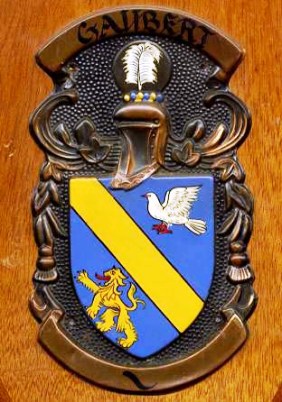
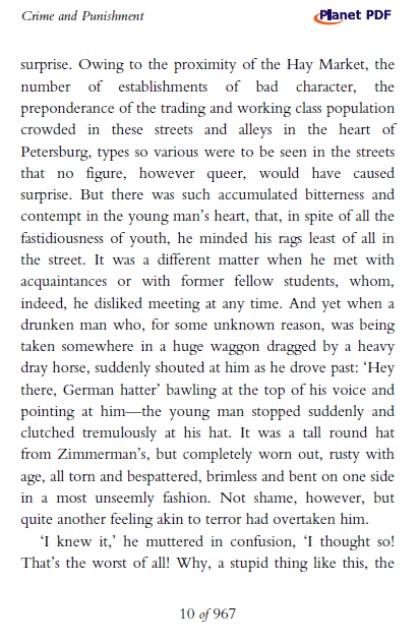
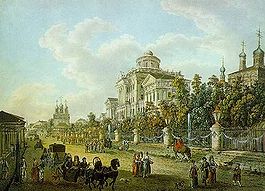
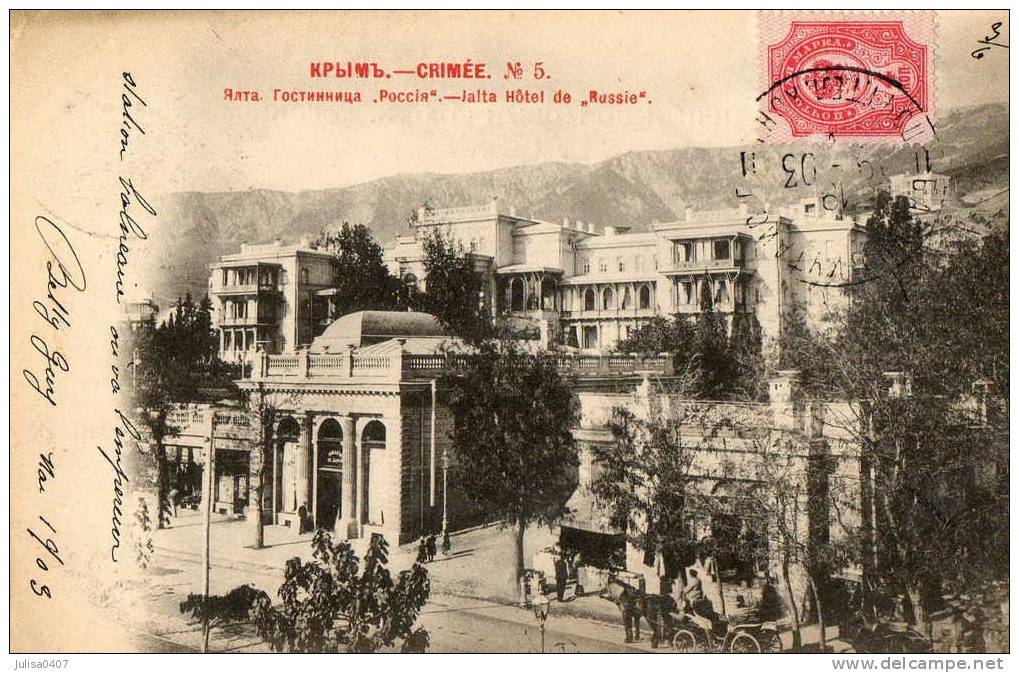
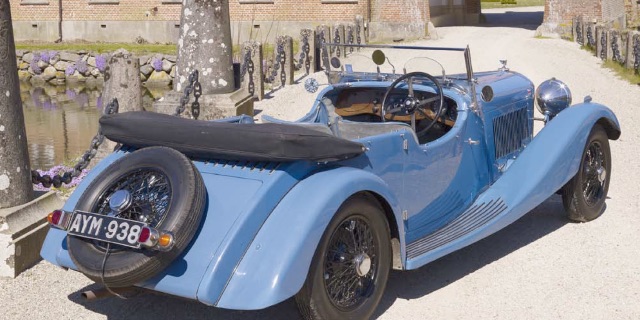
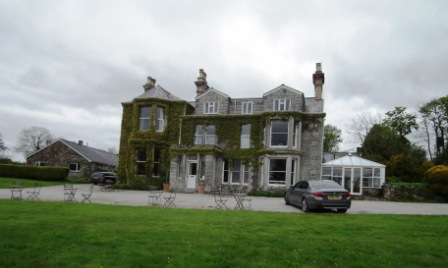
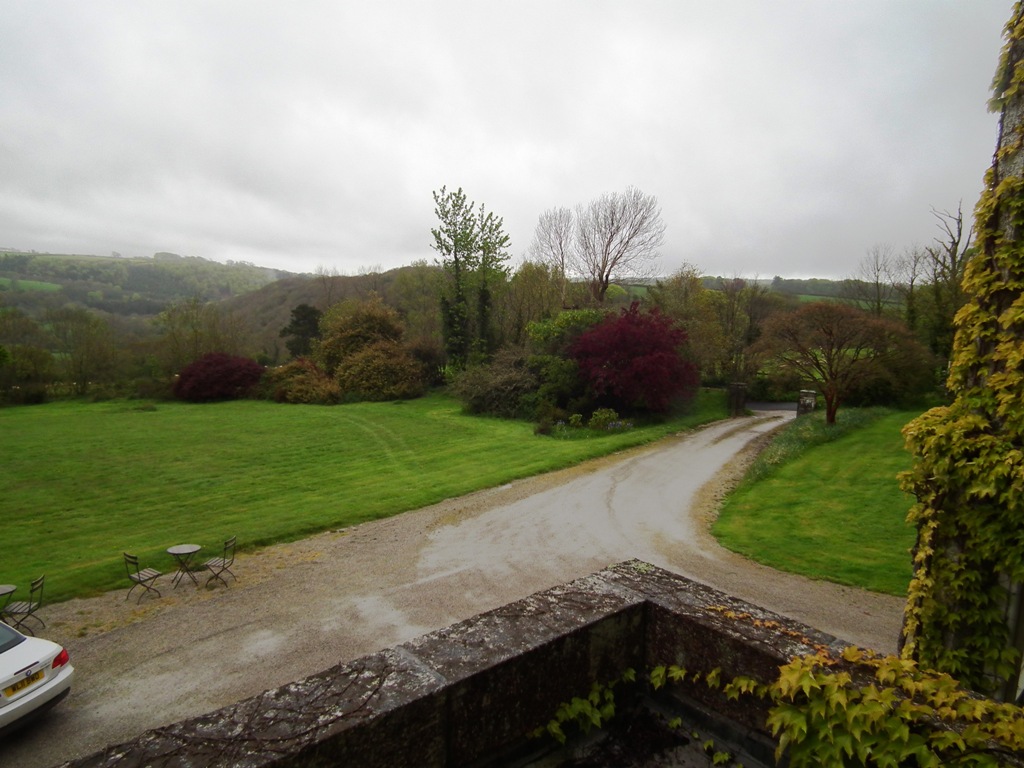
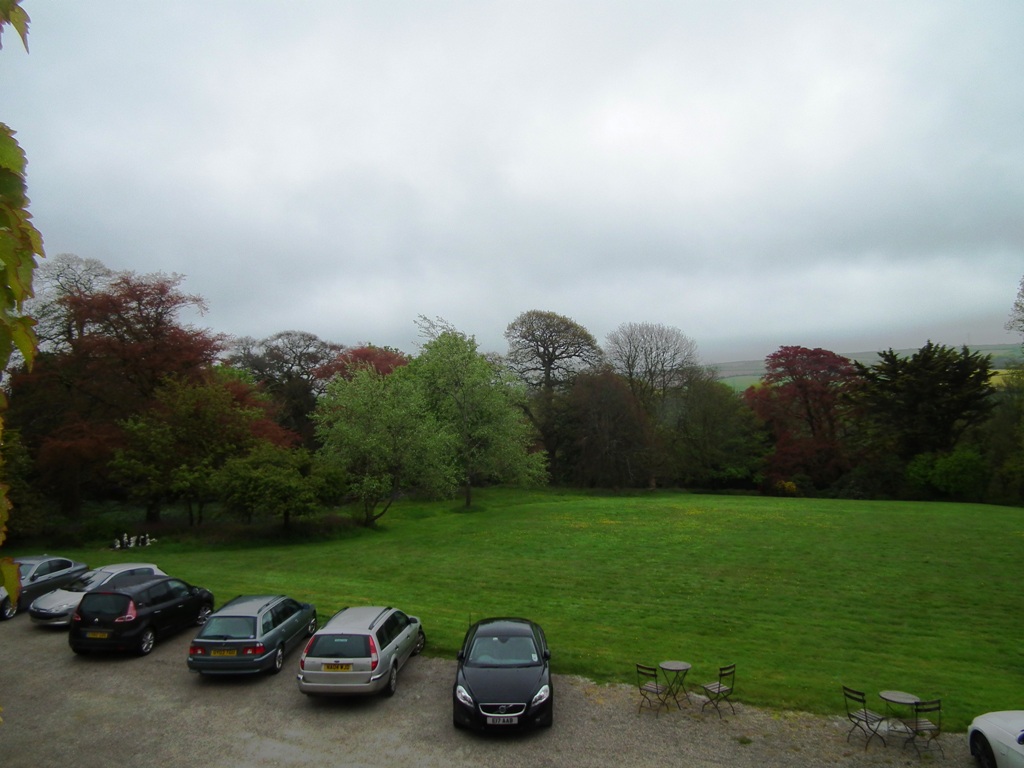
sm.jpg)
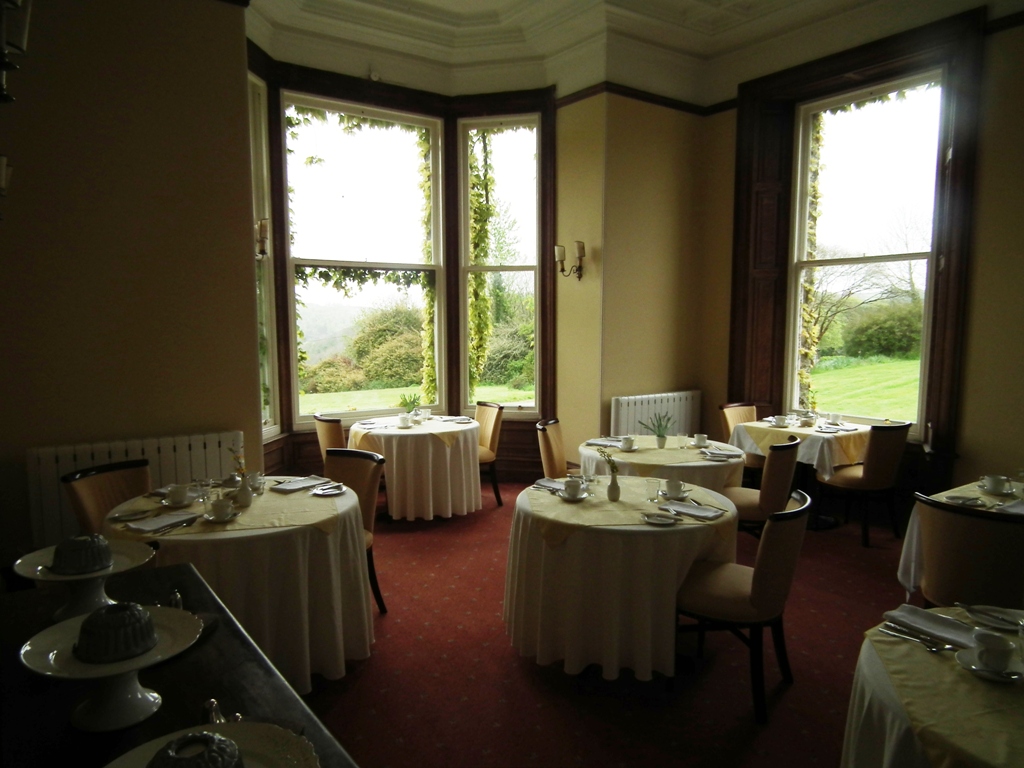
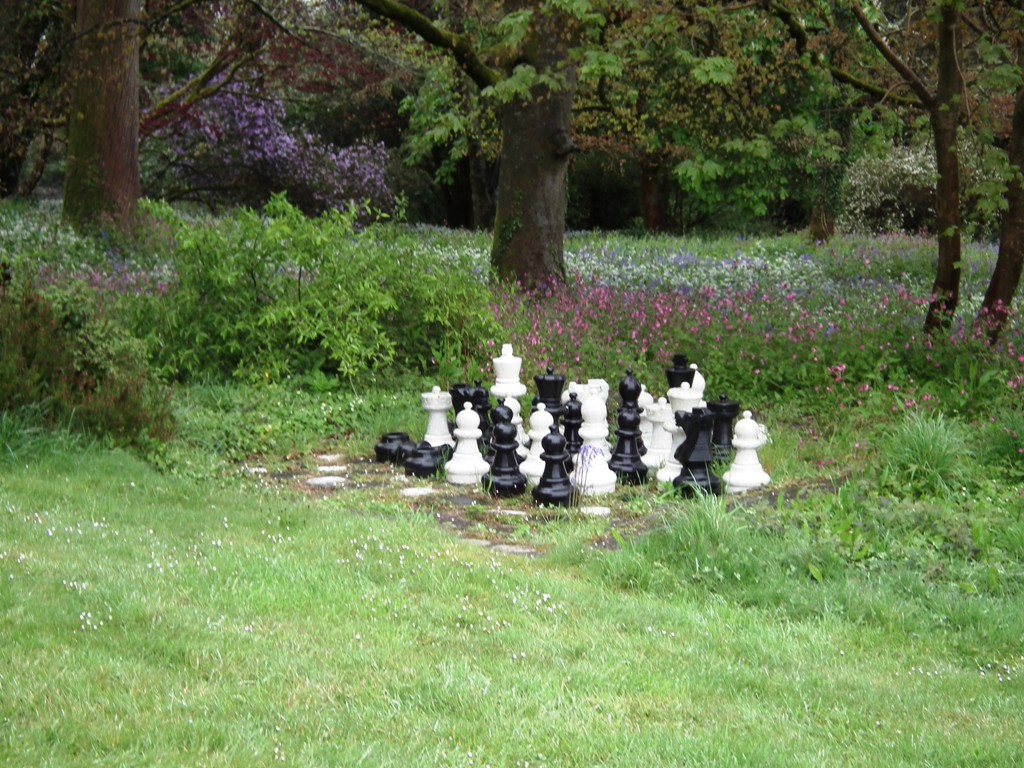
sm.jpg)
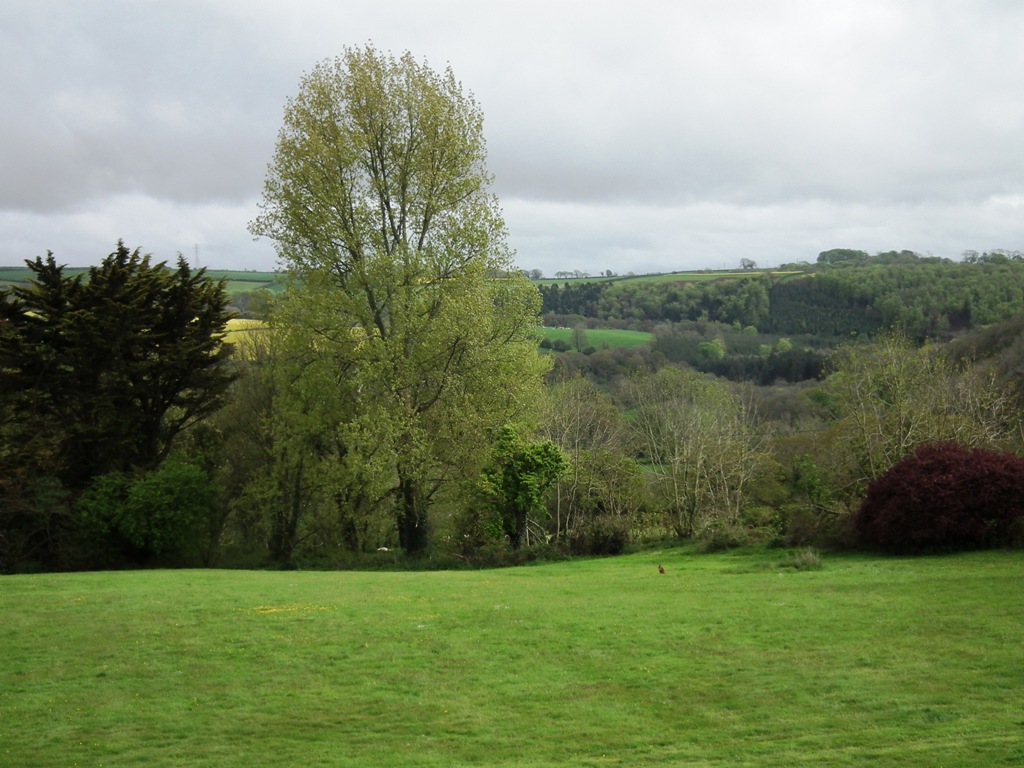
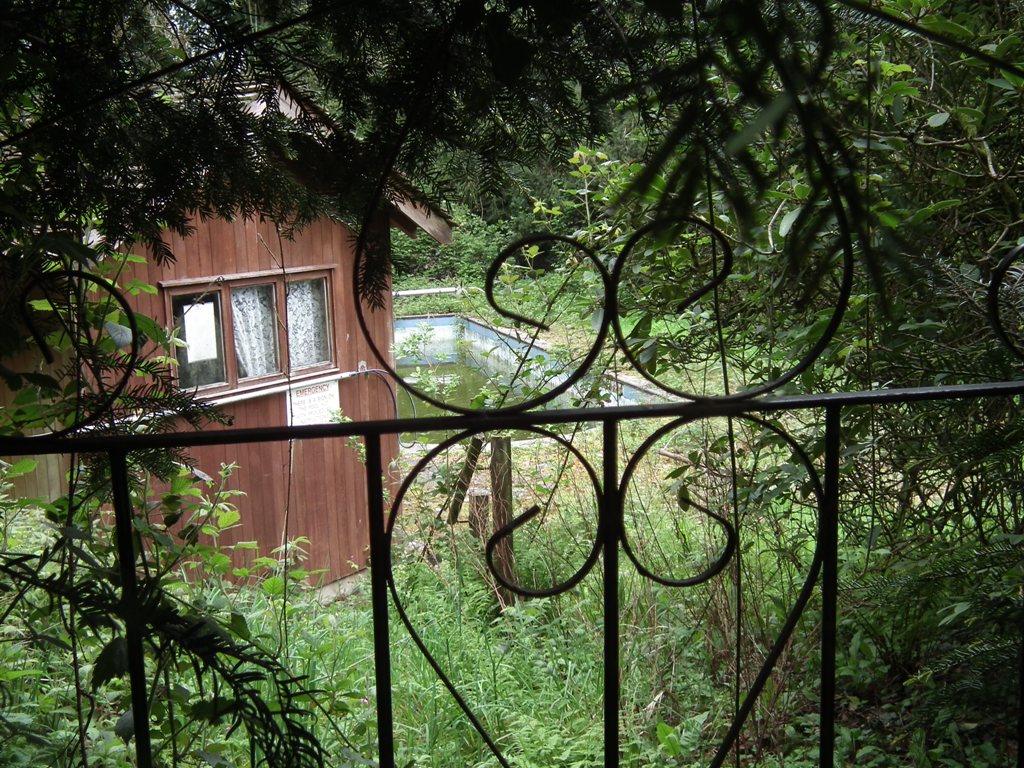
sm.jpg)

